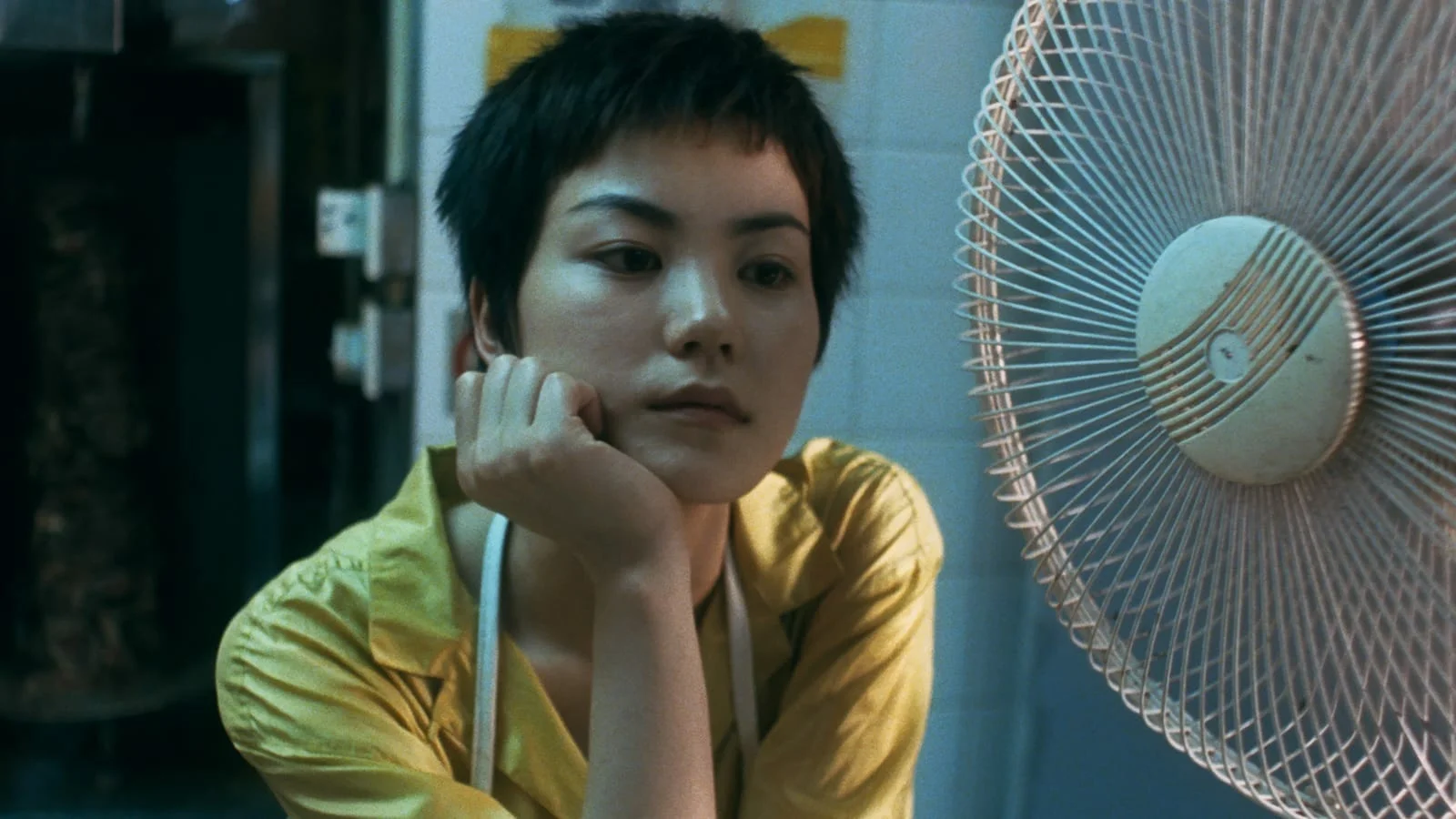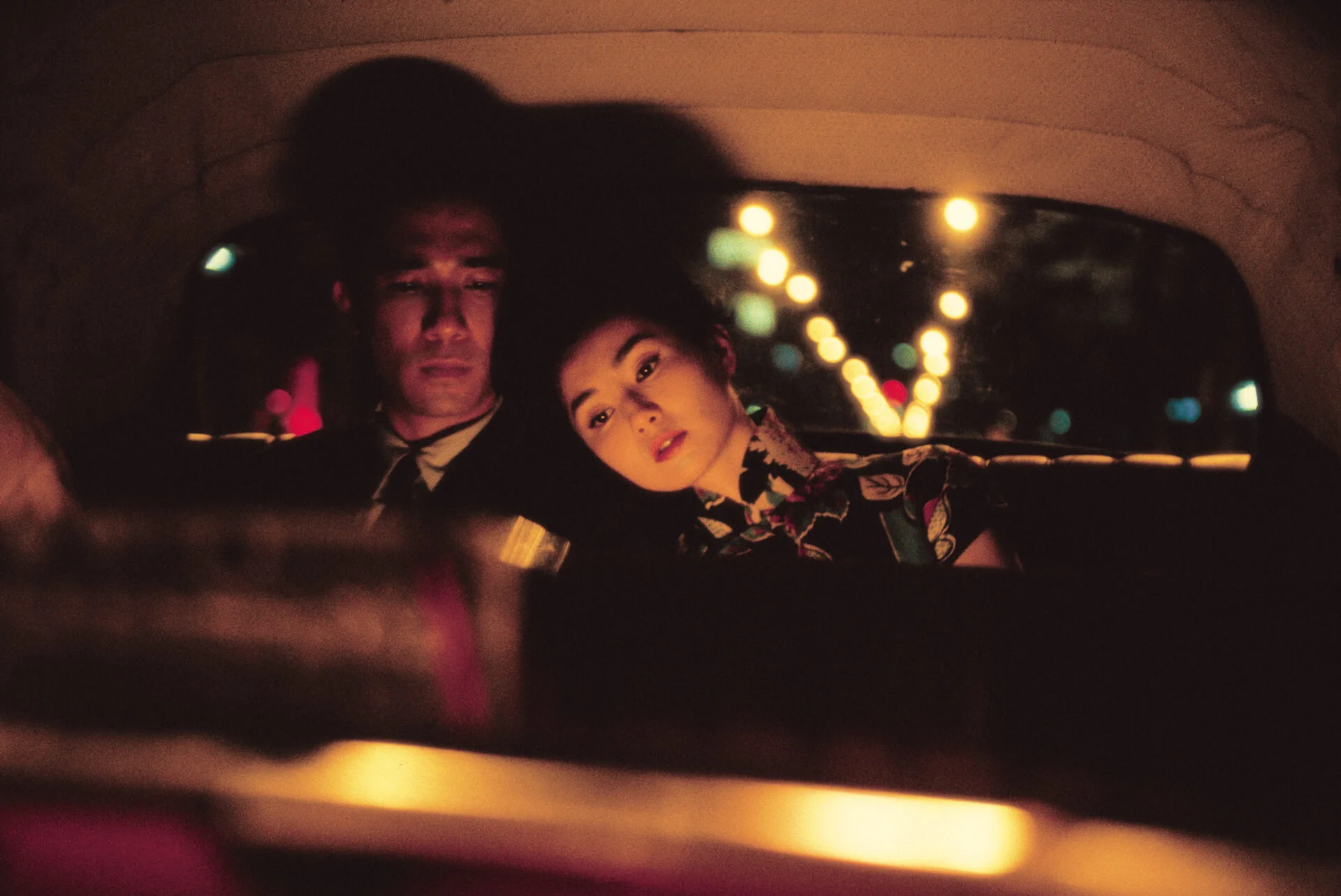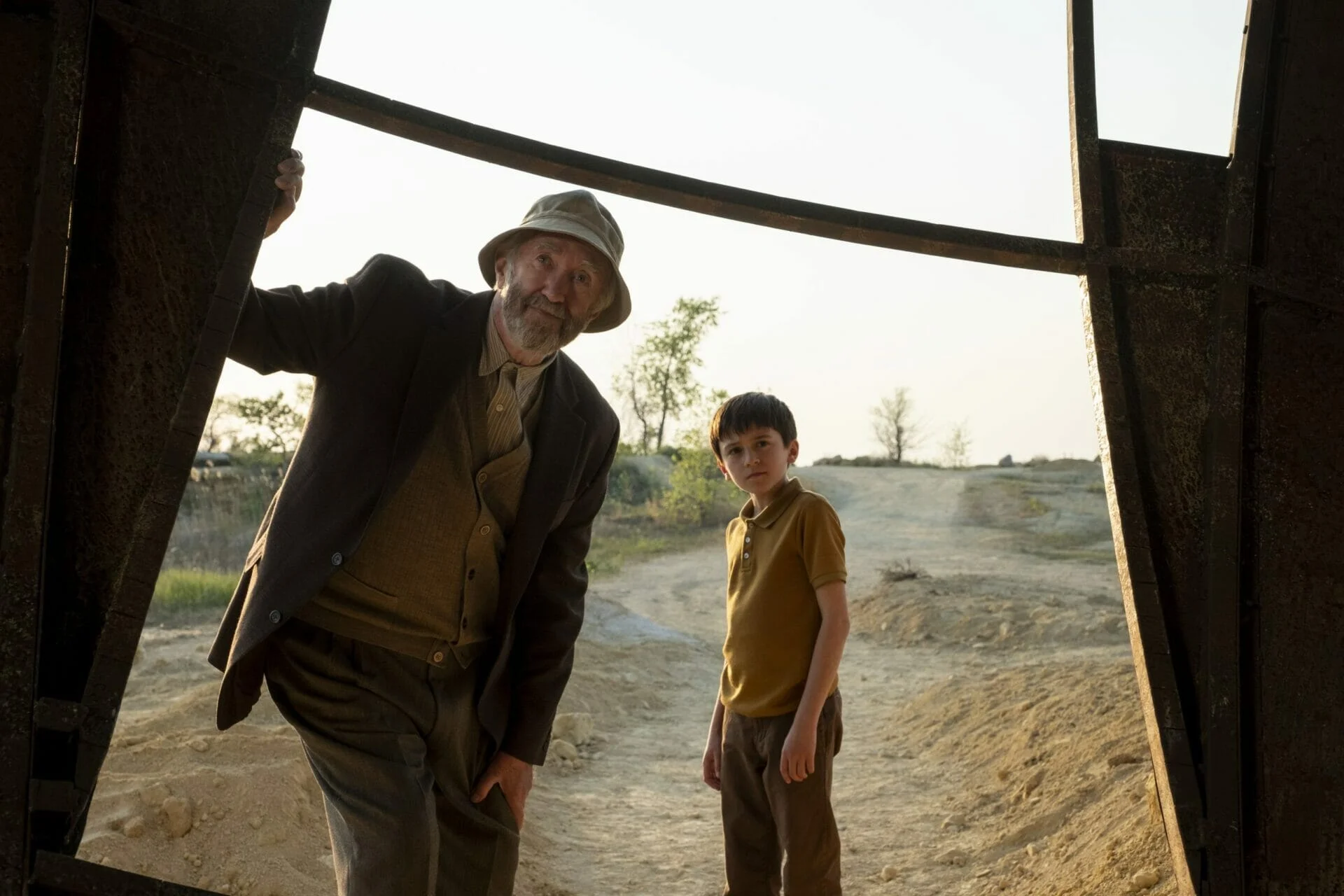
Chungking Express | A whirling tale of 1990s Hong Kong
Year
Runtime
Director
Writer
Cinematographer
Production Designer
Music by
Subgenre
Chungking Express is a 1994 romantic dramedy written and directed by Wong Kar-wai with Takeshi Kaneshiro, Brigitte Lin, Tony Leung, and Faye Wong. The film is a kaleidoscopic journey in two episodes through 90s Hong Kong, chronicling love, longing, loneliness, and globalization.
In the first story, Cop 223 (Takeshi Kaneshiro) tries to cure his heartache by falling in love with a blonde drug dealer (Brigitte Lin). In the second, Cop 663 (Tony Leung) gets dumped by his flight attendant girlfriend and ends up becoming the love obsession of Faye (Faye Wong), a dreamy waitress who works in a fast-food restaurant called the Midnight Express.
The amalgamation and blending of time
The two episodes are told in a linear sequence, where the timing does not follow the usual rules. The first episode (Kaneshiro / Lin) contains a few intentional contradictions. As an aesthetic manifesto, these devised incongruities set the mood of the entire movie.
First of all: the crime subplot. During this episode, the details of the international intrigues that drive Linn’s character are left to the viewer’s imagination. Wong refers to crime tropes (like guns, chases, and gangs of drug traffickers) in light and free-of-consequences way.
This choice is yet another signal the director wants to give the audience. An invitation to let go of the desire to perfectly rearrange the events of the characters in a cause-effect scheme. Aristotelian logic does not always work and especially in the busy streets of Hong Kong.
To fully understand Chungking Express, the viewers must let themself to the suggestions of actions, dialogues, music, and colors – a palette of bright and melancholy neons. Wong uses the crime element as Godard did in the films with Anna Karina (Pierrot Le Fou or Bande à Part, for example). Both Godard and Wong abolish the sense of consequentiality of actions. By doing this, they take elements from the visual language of a certain genre and give them new meanings, changing the traditional narrative.
All you need to make a movie is a girl and a gun
Godard quoting Griffith in 1964
In addition to the deconstruction of the crime tropes, there is another syncretic moment: synchronicity.
Halfway through the first episode, there is a sequence where Brigitte Lin smokes a cigarette while Faye Wong buys a huge puppet that she will bring to Cop House in the following episode.
Each time the characters touch or pass by, one of the film’s themes manifests itself.
Timelines and lifelines intertwine together. The qualitative time of subjective experience emerges over the quantitative and hectic time of everyday life.
According to Wong’s characters, the only thing humans can do to face the turmoils of everyday life is to embrace the yearning and dreamlike time of the subjective experience. The time of longing, remembering, and feeling is the only time span that counts.
An Urban Jungle
In Chungking Express, the protagonists fully abandon themselves to their own sentimental longings, arriving almost on the verge of psychosis.
Cop 233 collects pineapple cans that expire on May 1st (his birthday, and the date that marks his one-month “breakup anniversary”). Cop 663, also with a broken heart, fully believes that his home furniture is mourning his ex-girlfriend.
The director’s gaze on these existential delusions is anything but indulgent. To survive the urban jungle, Chungking’s naive heroes develop an alternative communication of birthday wishes left on pagers, songs listened to ad nauseam, and messages written on paper napkins. Elements of a language as imaginative as it is fragile and constantly put at risk by the surrounding environment.
The Space of Possibilities
The film’s rhythm follows the pace of Hong Kong’s streets. Time scansion flips between the frenetic speed of workers, gangsters, tourists, and citizens and the meditative, wandering rhythm of the main characters.
The opening scene portrays Cop 223 running after a suspect. After having caught him, he starts wandering through the city and asking himself when he will find his next meaningful love or at least feel close to someone again. At the first encounter with the femme fatale (the blonde woman in a wig), he says :
This was the closest we ever got. Just 0.01 of a centimeter between us.
As underlined by Professor Wendy Gan in 0.01cm: Affectivity and Urban Space in Chungking Express:
0.01 cm is an urban space of possibilities—separation or connection, strangers or friends. This is a form of urban space that is of interest to Wong—that physical gap between busy passers-by in the city. […]In the first story, Wong suggests that the sharing of 0.01 cm in a busy city can produce an affect. In the second, the possibility of sustaining a relationship through the non-simultaneous sharing of space is posited.
Tag







